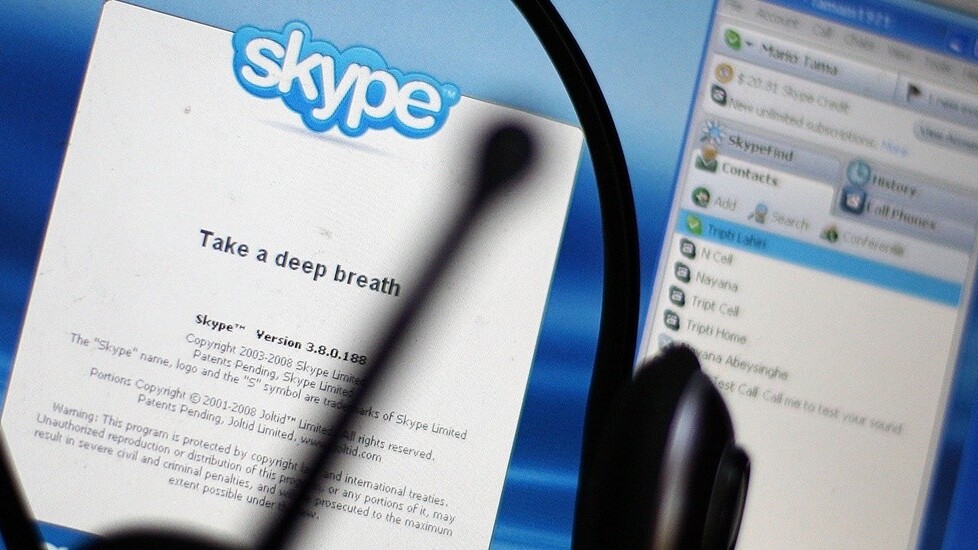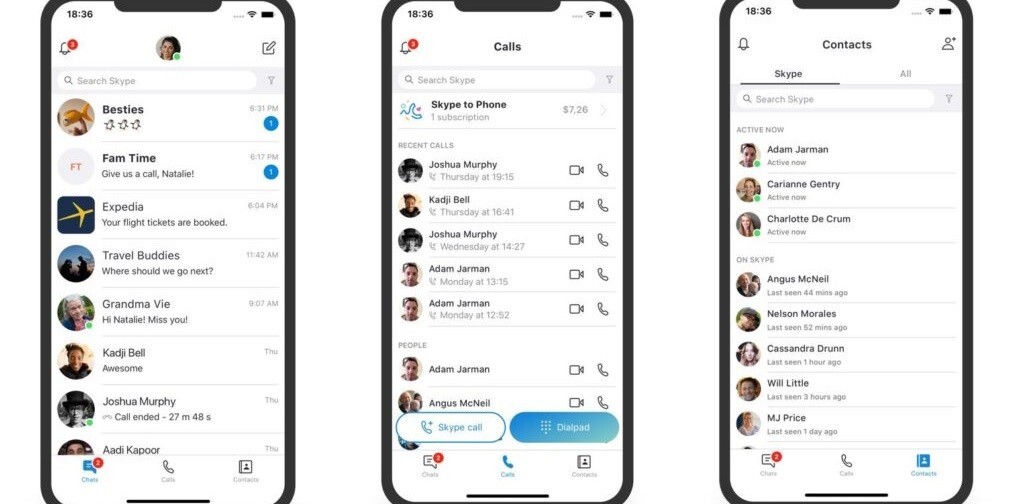
Earlier this month, Skype ended its partnership with TOM Online, the mobile Internet company that managed its service in China; and yesterday it announced Guangming Founder (GMF) as the replacement.
Speculation was rife that Microsoft would continue placing similar censorship restrictions on the Skype service, as it did during its partnership with TOM Online — allowing information to be processed by TOM and stored on servers located in China, in the absence of privacy controls.
However, research from Chinese Web monitoring service GreatFire suggests that Microsoft has instead taken measures to remove mechanisms that allow for spying on users and their activity. It notes that currently, all user calls, chats and login information are encrypted and communicated directly to Microsoft via HTTPS.
Furthermore, it appears that the China-specific Skype service is now using servers based outside of the country — and potentially out of reach of the censor-happy authorities in China.
“This is a complete about face for Microsoft from the TOM-Skype era,” GreatFire says in a blog post detailing its findings.
We reported yesterday that Skype and GMF have started migrating users and updating the Skype software in China to a new version — which will be available for Windows 8.1, Mac, older Windows platforms, Android and iOS.
GreatFire found that despite this version being different from the international version of Skype that supports Chinese — noting that the download link is hosted by GMF in China — it appears that Microsoft has retained full control of the new Skype.
“The software is digitally signed by Microsoft, which means Microsoft and Microsoft alone is responsible for the software’s code. The Chinese authorities cannot provide counterfeit software to users in China,” GreatFire notes.
The GreatFire team analyzed the communications passing through the new China-specific version of Skype, and found that there are no censored keywords — as communications pass through servers located in Singapore, the U.S and Ireland.
Whether this will change further down the road is a different matter altogether — if it comes to the government’s attention that Skype is skirting such censorship issues. It’s fairly normal for overseas firms to adhere to censorship demands in order to do business in China — Japanese/Korean messaging app Line has developed a China-specific version of its service where communications are censored accordingly, for example.
In the meantime though, GreatFire has praised Microsoft for making this change to its Skype service.
We hope this is a harbinger of change to come not just from Microsoft but from all major internet players. It appears that Microsoft is indeed fighting back against censorship in China. We have been very critical of Microsoft and Skype in the past but today we applaud this development.
Update: Skype has responded to multiple requests with comment with a statement, although it doesn’t make any reference to the alleged change to the location of its servers for Skype China, nor the topic of user surveillance:
Skype confirms that the global version of the Skype client was launched in China earlier this week, beginning a Beta period during which users will be updated to the new software. Skype will continue to work closely with its partner Guangming Founder to provide great user experiences in China.
Headline image via Mario Tama/Getty Images
Get the TNW newsletter
Get the most important tech news in your inbox each week.




